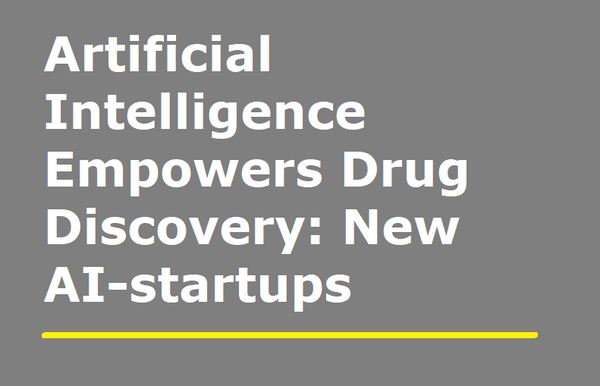The Power Of Machine Learning For Drug Discovery
An IBM’s executive Deborah DiSanzo just announced a collaboration with a pharmaceutical giant Pfizer to speed up anticancer drug discovery. This is yet another sign of a technological transformation unfolding in biopharmaceutical industry.
The newly formed partnership will bring the power of IBM’s supercomputer Watson and its artificial intelligence system to help researchers at Pfizer advance “immuno-oncology”, a potentially promising area for cancer research.
Pfizer will use Watson’s capabilities of machine learning, natural language processing, and other cognitive reasoning technologies to improve analysis of massive volumes of public and private datasets, including more than 30 million sources of laboratory and data reports, research articles, patents, and other medical literature. It is supposed to assist in testing research hypotheses and identify new promising therapeutic targets.
In 2012 artificial pattern-recognition algorithms achieved human-level performance on certain tasks, including image and text recognition. One notable example of this was Google’s deep learning algorithm which managed to discover cats in Youtube videos.
Since then, the area of machine learning has progressed exponentially offering new practical implications for industry and scientific research. Beyond industrial giants like IBM, several hi-tech startups emerged recently to offer artificial intelligence tools for analyzing research literature and experimental datasets.
Palo Alto based startup Bioz has developed a search engine for Life Sciences community using natural language processing and machine learning technology to scan hundreds of millions of pages of complex and unstructured scientific papers on the web. Then it helps summarize the information into usable visualized format. Bioz has already raised $3 million in seed funding from industry investors, including Esther Dyson. The company aims at becoming “Google” for Life Sciences.
Another company - a London-based hi-tech startup BenevolentBio hopes to “update” the drug discovery paradigm using deep learning technology.
According to Professor Jacki Hunter, CEO at BenevolentBio, it is picking the right target which is fundamental for the success of a drug discovery program, as well as predicting toxicity. The deep learning algorithms offered by the company can help researchers tap into the huge amount of public information and see if there are some data supporting or undermining the target of choice and possible side effects for the drug candidates. The system generates hypotheses which researchers can then triage. Another important area where BenevolentBio’s system can be useful is drug repurposing projects.
Topics: Emerging Technologies


Comments:
Future Of Work With AI, Machine Learning, and Deep Learning
Still in the early stages of development and use, artificial intelligence, machine learning, and deep learning are already impacting how we live, work, and play. Is your organization ready to embrace and leverage these disruptive innovations?
what do you think are Machine Learning future trends 2019 ?
Leave a Reply cancel reply
Your email address will not be published. Required fields are marked *